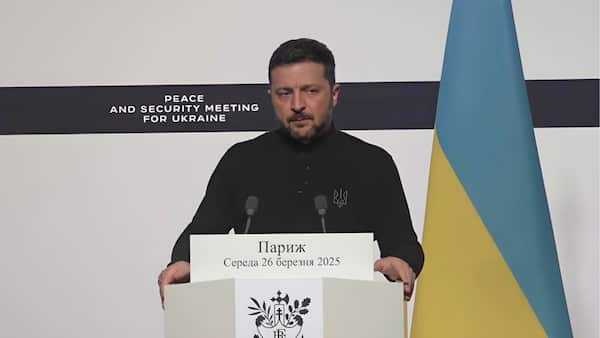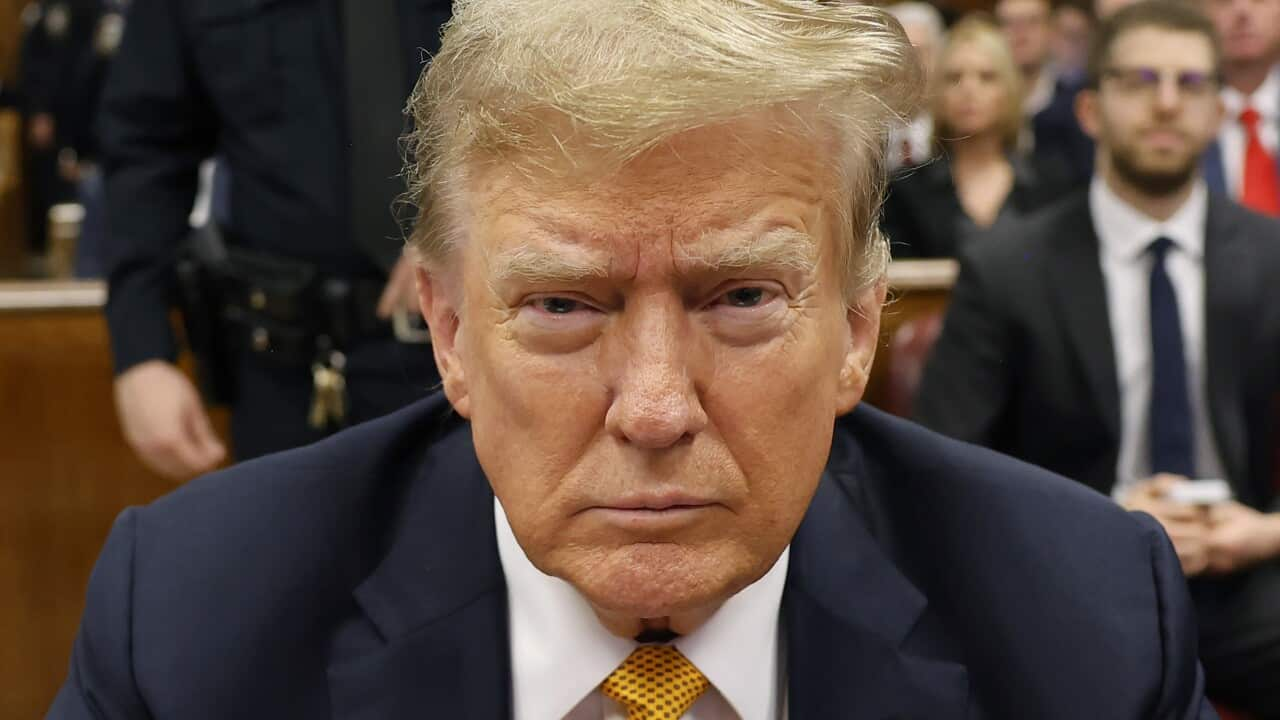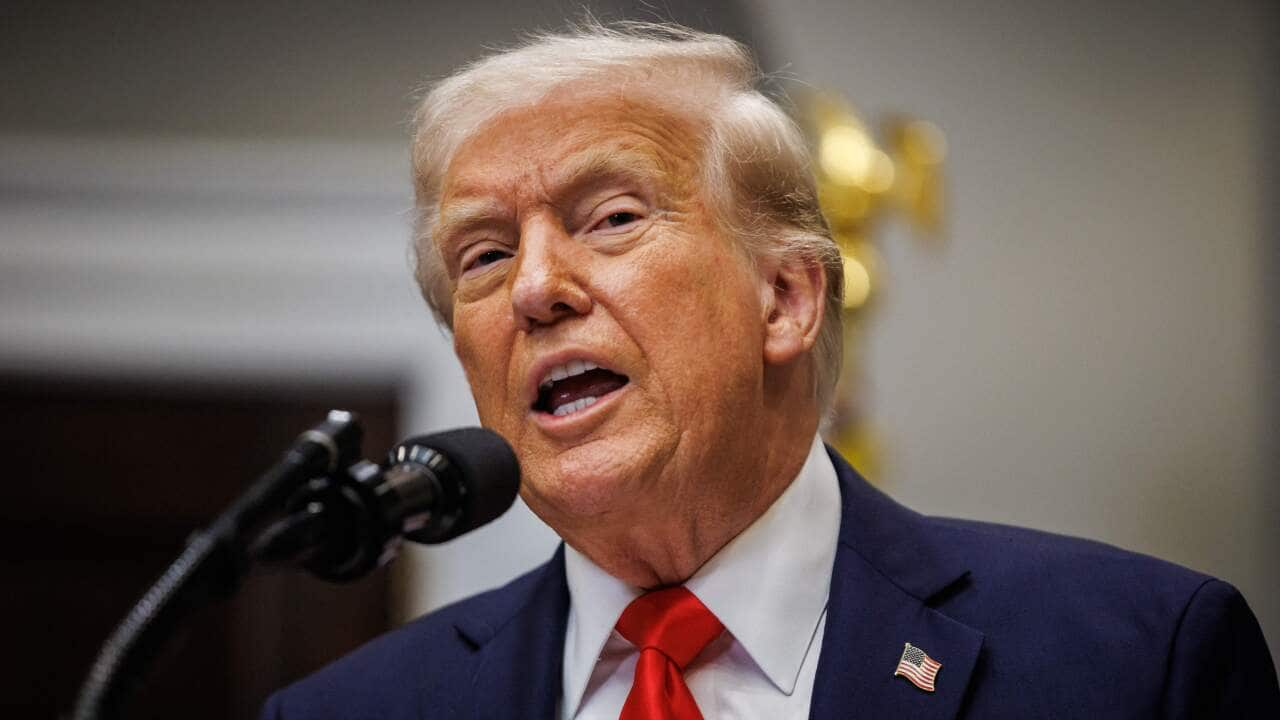Key Points
- Two Russian ballistic missiles hit the centre of the northern Ukrainian city of Sumy on Sunday.
- The attack killed 34 people and wounded 117 in the deadliest strike on Ukraine this year, officials said.
- US President Donald Trump has been trying to broker a ceasefire deal between Russia and Ukraine.
US President Donald Trump said during his election campaign he would end the Russia-Ukraine war "on day one", but months after he took office, talks between Russia and the US have amounted to nothing and over the continued military engagement in the region.
In what is said to be the deadliest attack on Ukraine in months, a missile strike on the , killed at least 34 people on Sunday, authorities said. Leaders from the US and Europe condemned the attack.
US secretary of state Marco Rubio called the attack "horrifying" and a "tragic reminder of why President Trump and his administration are putting so much time and effort into trying to end this war and achieve durable peace".
The strike came two days after US presidential envoy Steve Witkoff travelled to Russia to meet President Vladimir Putin and push Trump's efforts to end the war.
But experts believe that the path to ending a war that's dragged on for more than three years and killed thousands remains unclear.

A man cries at a bus that was hit by a Russian missile on Sumy, Ukraine. Source: AAP / Volodymyr Hordiienko/AP
What's blocking a ceasefire between Russia and Ukraine?
Ukrainian President Volodymyr Zelenskyy has repeatedly said his country is willing to undertake a complete ceasefire.
"But the greatest stumbling block is Russian interests", research fellow at Australian National University's Centre for European Studies, Sonia Mycak, told SBS News.
"The Putin regime shows absolutely no indication of wanting to de-escalate their attacks. On a day of religious significance for Christians, Palm Sunday, the Russian military unleashed two ballistic missiles on downtown Sumy."
French President Emmanuel Macron said the attack highlighted the urgent need to impose a ceasefire on Russia.
In February, US and Russian officials met in Saudi Arabia for their first face-to-face talks since the invasion, where the former tried to broker a limited ceasefire between Russia and Ukraine in the Black Sea.
But this fell apart when Russia asked for the removal of sanctions imposed on it after its 2022 invasion of Ukraine.
Trump has since said he is "very angry" and "pissed off" with Putin over the lack of progress made in the US-Russia talks.
He has walked back from his pledge to end the war on day one, first extending the promise to six months, then saying he was being "a little bit sarcastic" about the 24-hour timeframe.
Matthew Sussex is an associate professor at the Australian National University's Strategic Defence Studies Centre who specialises in Russian security and defence policy.
LISTEN TO

President Zelenskyy hopes the US will resist pressure from Russia
SBS News
03:54
He told SBS News the US is forcing concessions from Ukraine but putting minimal pressure on Russia to come to the table.
"If you were in the Kremlin and looking at the way that the United States was going about the negotiations and the big ceasefire deal, then you'll have seen that the Americans have given away virtually all of their diplomatic capital that they could have used," he said.
"And you never interrupt your adversary when you they're making a mistake."
He said that Trump's "desire to be liked by dictators like Putin is standing in the way of a peace deal", as is the fact the US "does not understand how to treat Russia" and should be forcing it to agree and make concessions.
Is Trump’s negotiation style helping or hindering a ceasefire?
In March, a fiery meeting between Zelenskyy, Trump and US vice president JD Vance ended abruptly, of Zelenskyy.
Mycak, who is of Ukrainian descent, believes the Trump administration is proving ineffective in negotiations.
"The president’s attitude towards Ukraine – the victim of an unprovoked invasion – is erratic at best and biased at worst," she said.
"The US has lost credibility as a fair and balanced negotiator."
Sussex said the Ukrainian side likely views Trump's staffers as "about as trustworthy as the Kremlin".
"If there is a ceasefire, I would expect it to be fairly partial, fairly temporary and broken by both sides virtually straight away," he added.
"There doesn't seem to be a really easy way out of this war, mainly because for the two sides concerned, they have fought each other to a standstill, and as a result, there's no real reason for them to stop."
Putin said this month that before he could agree to a ceasefire, he would need to know the future of Ukrainian troops in Russia's Kursk region, whether Ukraine would use the time to mobilise troops and rearm them and whether the ceasefire could be verified to his standards.
Ukraine has demanded the release of all prisoners and civilian detainees and expressed a desire for security guarantees from Russia and territory concessions, all of which have been rejected at peace talks.
How are Russia and Ukraine placed to continue the fight?
Russia has relentlessly attacked Ukraine in recent weeks, stepping up its latest invasion that has gone on for more than three years.
Sumy has been under increasing pressure since Moscow pushed back many of Ukraine's troops from its Kursk region inside Russia, across the border.
Ukraine warned for weeks that Russia could mount an offensive on the city.
Sussex said many analysts assume Putin has "basically unending" men available to fight against Ukraine, but is facing domestic economic problems and will be hurt by the fall in oil prices that has.
Mycak said Ukraine is better placed now than it has been.
"Over 40 per cent of Ukraine's defence forces weaponry is now domestically produced, making Ukraine less dependent on military support from other countries," she said.
"European partners are scaling up their support, both in terms of financial and military aid to Ukraine and in recognising that their own military capabilities need to be increased, for their own protection against potential Russian threat."
With additional reporting by Agence-France Presse.


